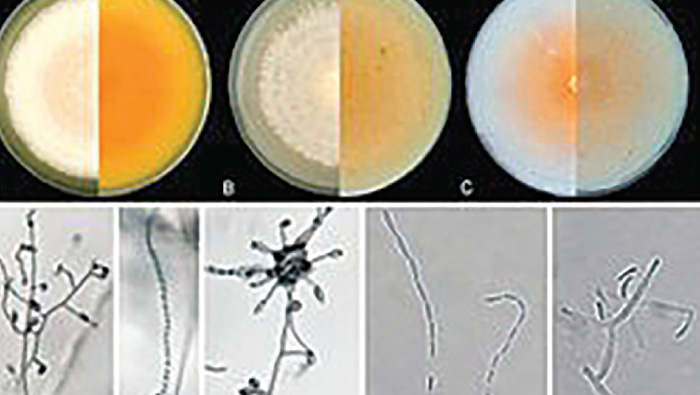
Muscat: The Ministry of Health has announced that an Omani lab researcher has discovered a new type of harmful fungus strain while examining samples from the lungs of a female patient.
Dr Abdullah Al Hatmi, a senior specialist microbiologist and lab researcher at the Directorate General for Health Services in Al Dhahirah, “recently worked with his international research team in Amsterdam (Westerdijk Fungal Biodiversity Institute) and discovered a new species of fungus for the first time. This was while running tests on lung samples of an infected patient. The species was named Fusarium volatile.”
Speaking about the discovery, Al Hatmi said “This species of Fusarium was discovered while analyzing the lung samples of a female patient who was diagnosed with a lung infection in a South American country.”
When the sample was sent to the research institute in Amsterdam, the team discovered that the patient had a serious fungal infection and the new type of fungus was discovered.
The team’s discovery was published in medical journals and celebrated for its importance towards diagnosing communicable diseases. Furthermore, the full research article ‘Fusarium Volatile, a new potential pathogen from a human respiratory sample’ is scheduled to appear in the medical journal ‘Fungal Systematics and Evolution’ in December 2019.
This is not the first time that Al Hatmi’s discoveries are celebrated in the medical world.
The statement by the MOH read: “Dr Al Hatmi has contributed towards the discovery of diseases officially registered as having been discovered in Oman.
“He has written more than 80 research papers and has been cited more than 883 times according to the Google Scholar Search Engine,” the statement added.
Currently, Al Hatmi is researching a species of fungal spores called Candida Auris, which was first discovered in a 70-year old Japanese woman in 2010 and which proved to be resistant to treatment.
The statement by the MOH read: “The cases involving Candida Auris began appearing all over the world, including Oman and the fungus has proven to be a real threat to public health because of its resistance to treatment and also because it appears during long healing periods to attack the human body.
“As soon as Candida Auris appears, it’s difficult to eliminate because it can spread from one body to the other,” added the statement.
Speaking about Candida Auris, Al Hatmi said: “There are currently three main types of treatment used for people and some strains of Candida Auris can resist all three types of treatment, which limits the methods of treatment.”
Al Hatmi dedicated his discovery to His Majesty Sultan Qaboos bin Said, “The sponsor of the scientific renaissance and the one who built modern Oman, as well as the Ministry of Health,” which he says gave him the chance to continue his studies and research. Al Hatmi also thanked his research group at the Westerdijk Fungalbio Diversity Institute in Amsterdam.